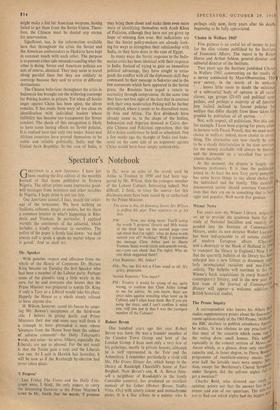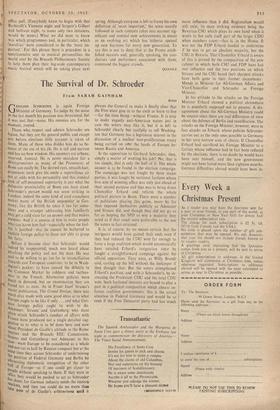The Proms Inquiry A correspondent who knows his Albert 1 -
makes supplementary points about the Special, recent opinion-study of the 1965 Proms. 'Altbot the BBC declines to publish attendance figilf he writes, It was obvious to any practised that most of the concerts which came,1013, the voting drew small houses. This apP) especially to the concert version of Moses:‘, Aaron which, at a glance, drew only two-Ill capacity and, in lesser degree, to Pierre Bold' programme of twentieth-century music, "! pver half the lettable seats were empty. \\ then, except for Beethoven's Choral SyniPIP under Sargent, did the sell-out nights fall get a mention?' .1111 Charles Reid, who directed our study opinion, points out that. the answer lies is nature and aim of our questions. The aim not to find out which nights had the biggest br is it
1'
It)
'St
be 35
office pull. (Everybody knew to begin with that Barbirolli's Viennese night and Sargent's Gilbert and Sullivan night, to name only two instances, would be wows.) What we did want to know was which programmes and, in particular, which
y 'novelties' were considered to be the 'most im- e portant.' For this phrase there is precedent in a
h • questionnaire sent to musical personalities the world over by the Brussels Philharmonic Society to help them plan their big-scale contemporary music festival which will be taking place next spring. Although everyone is left to frame his own definition of 'most• important,' the sense usually followed in such contexts takes into account sig- nificant and seminal new achievements in music as an evolving art which has hitherto opened up new horizons for every neW generation. To say this is not to deny that at the Proms estab- lished masters and, generally speaking, the con- ductors and performers associated with them, command the biggest crowds.
QUOODLE







































 Previous page
Previous page